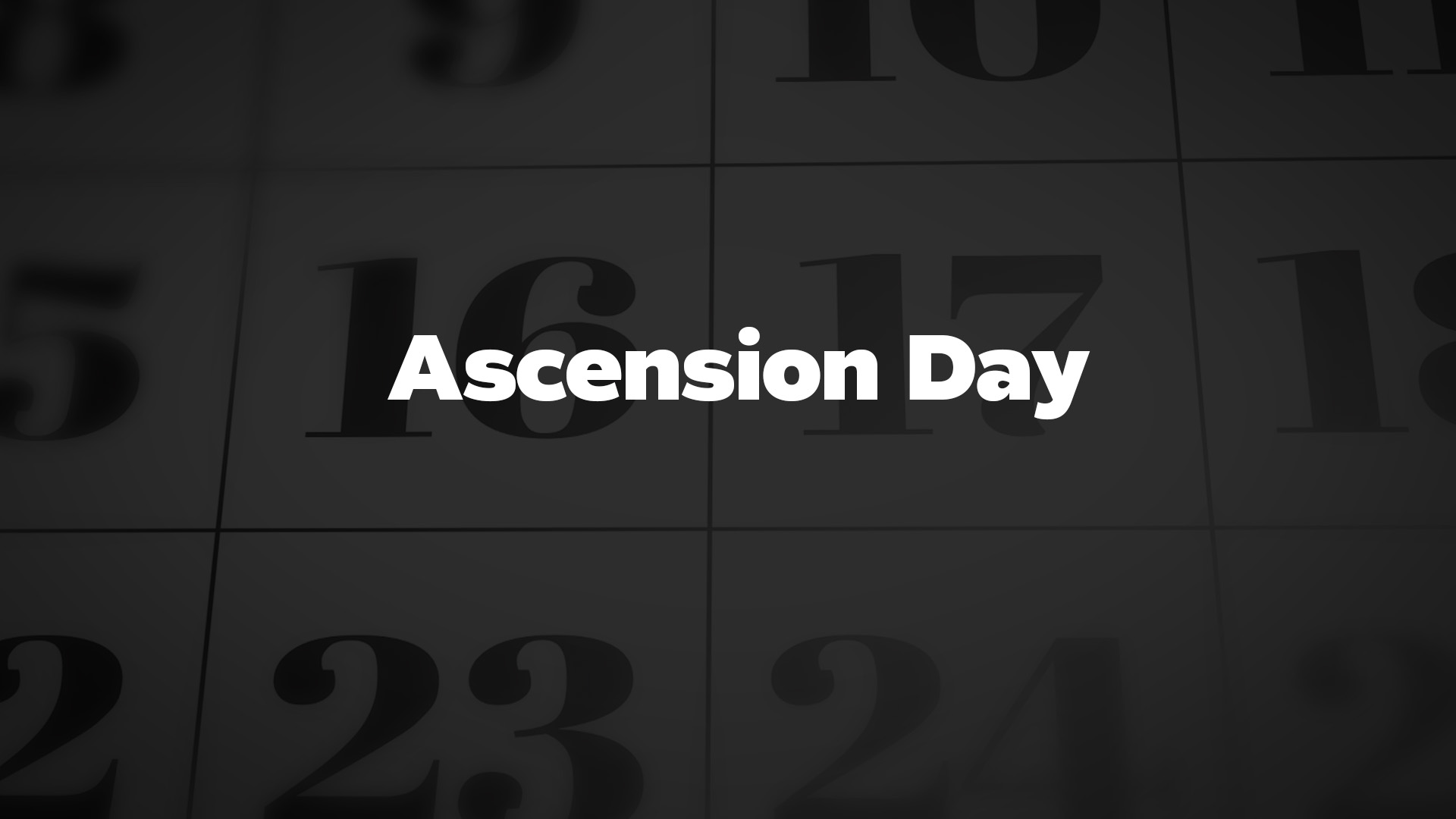
Ascension Day is a Christian holiday commemorating the ascension of Jesus Christ into heaven, 40 days after his resurrection.
#HASHTAGS
#AscensionDay
Ascension Day is celebrated annually on the 40th day of Easter.
Author: Nat Days
“When you arise in the morning think of what a privilege it is to be alive, to think, to enjoy, to love ...”
― Marcus Aurelius, Meditations
View all posts by Nat Days